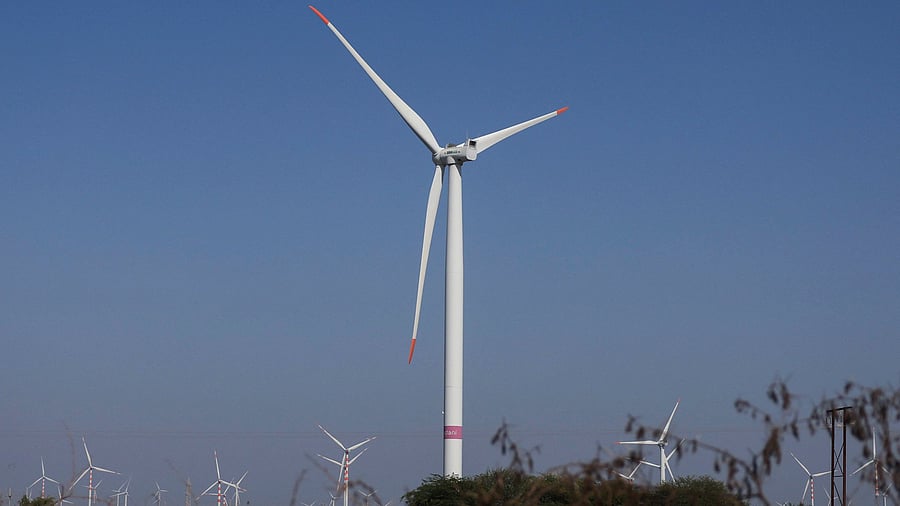
A view of power-generating windmill turbines at a wind park of Adani Green Energy at Ahmedabad-Narayan Sarovar state highway near Nakhatrana village in the western state of Gujarat, India.
Credit: Reuters Photo
Bengaluru: Karnataka’s renewable energy policy has posed significant challenges for producers since 2023, particularly in managing grid balance during peak hours, net consumption regulations, and directives from the Karnataka Electricity Regulatory Commission (KERC), said Shashi Kant Mishra, Associate Director – Business Development, AMPIN Energy Transition, on Wednesday.
Speaking at a session at GIM Invest Karnataka 2025 on Wednesday, Mishra pointed out that the government’s peak-hour usage policy needs deregulation, as it could negatively impact investors.
Adding to the discussion, Chintan Shah, group president and global head of strategy, predicted a distribution revolution in the next 15 years. However, the challenges faced by distribution companies must be addressed first to ensure better tenders.
Kishore Nair, CEO of Avaada Group, noted that battery prices have been declining over the past three years and emphasised that the cost of batteries will be a decisive factor in the expansion of solar energy. He urged Karnataka to introduce more incentives for manufacturers, as other states are already making significant strides in this direction.
